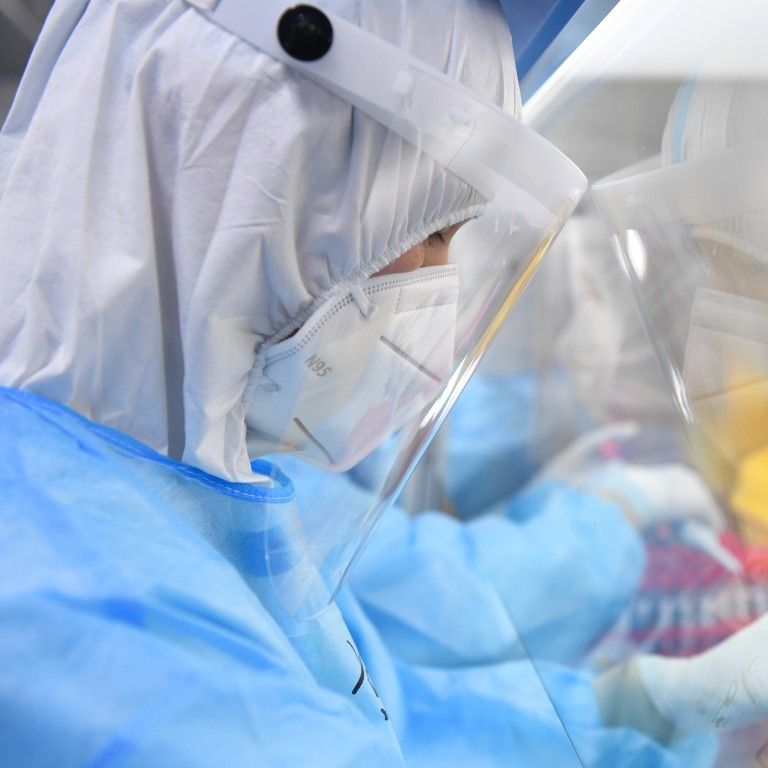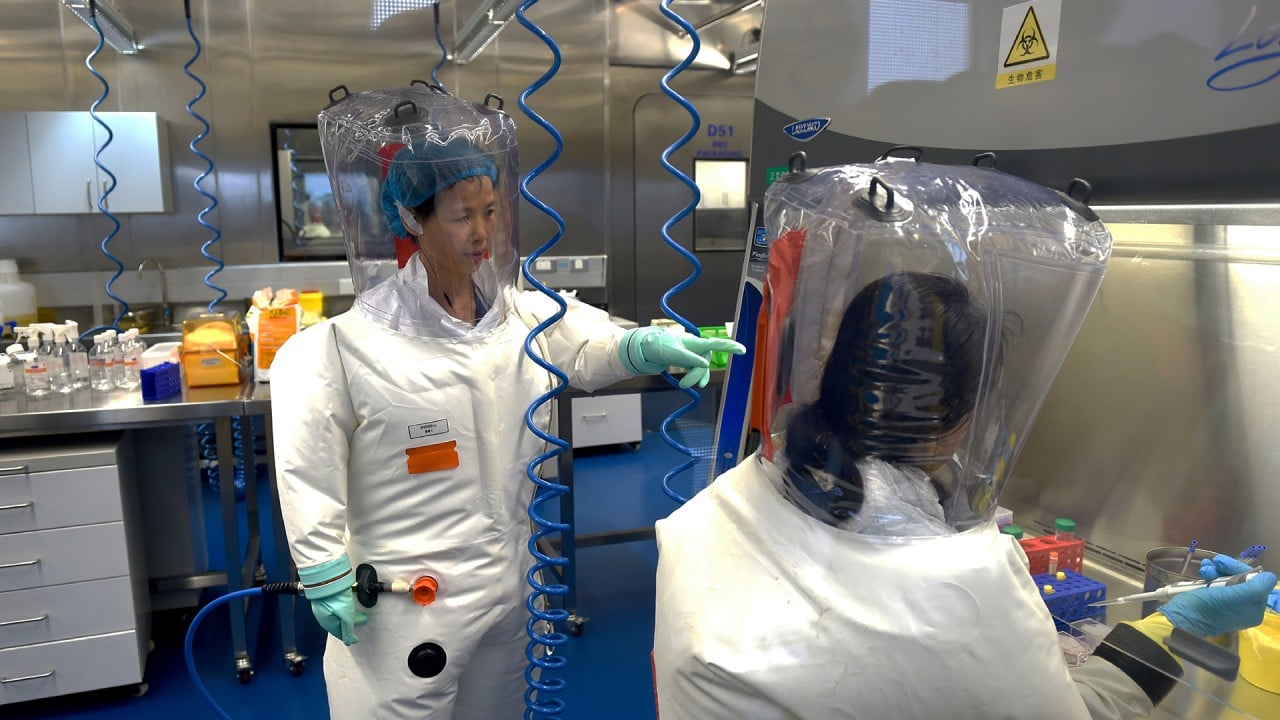
Coronavirus: China confirms WHO advance team in Beijing to pave way for origins search
- Foreign ministry underlines position that origin-tracing should also take place in other countries
- Beijing’s line aimed at reassuring domestic audience about source of the pathogen, analyst says
But the Chinese foreign ministry again said that the search should go beyond China.
Ministry spokeswoman Hua Chunying said China and the WHO had reached a “fundamental consensus” that “origin-tracing is a scientific issue that should be studied by scientists through international research and cooperation across the globe”.
“It is also the view of the WHO that origin-tracing is an ongoing process probably concerning many countries and localities, and the WHO will conduct similar trips to other countries and regions in light of the actual need,” she said.
China zeroes in on coronavirus goal but pandemic divides world, experts say
The two experts, an animal health specialist and an epidemiologist, would work with officials from the Ministry of Science and Technology and the National Health Commission to determine the scope of and logistics for the bigger international team to follow, the WHO said last week. The experts’ identities and itinerary, as well as the date of the later mission have not been disclosed.
This effort comes as the global infections reached a grim daily high, with more than 230,000 new cases, mainly from the United States, Brazil, India and South Africa, according to the WHO’s report on Sunday.
The virus is thought to come from an animal, likely a bat, before spreading to humans, possibly through an intermediary animal.
Scientists say that understanding how the pathogen made that leap is important for cutting off potential routes of transmission and preventing future pandemics.
Coronavirus: fully effective vaccine unlikely to be created before next year, expert says
China’s position that this search should involve trips to other countries was also made last week by the ministry before the experts arrived.
Yanzhong Huang, a senior fellow for global health at the Council on Foreign Relations in New York, said such comments were aimed at a domestic audience.
“There is implicit understanding that while China allows the WHO to come to investigate the animal origin, it doesn’t necessarily mean that China is the origin of the outbreak,” Huang said.

02:24
Coronavirus: A look inside China’s Wuhan Institute of Virology
The origins of the virus have been heavily politicised since US President Donald Trump repeatedly referred to the pathogen as the “China virus” and some US lawmakers as well as US Secretary of State Mike Pompeo advanced unsubstantiated theories that the virus spread from a laboratory in the central Chinese city of Wuhan, where cases were first identified at the end of last year.
On Friday, foreign ministry spokesman Zhao Lijian said the US should also invite the WHO to investigate the source of the virus in the US. He was responding to earlier comments from Pompeo who said China needed to “come clean with the world about this virus” and allow the WHO investigation to work freely.
In statements about the advance mission, the WHO has not said that it will conduct the same kind of investigation in other countries.
WHO Health Emergencies Programme executive director Mike Ryan said last week that Wuhan would be the “best starting point” for the WHO-led team’s investigation.
Ryan said the team would “keep an open mind” as they followed a “trail” from there.
The organisation on Sunday declined to give further information to the South China Morning Post about the status or itinerary of the advance mission.

